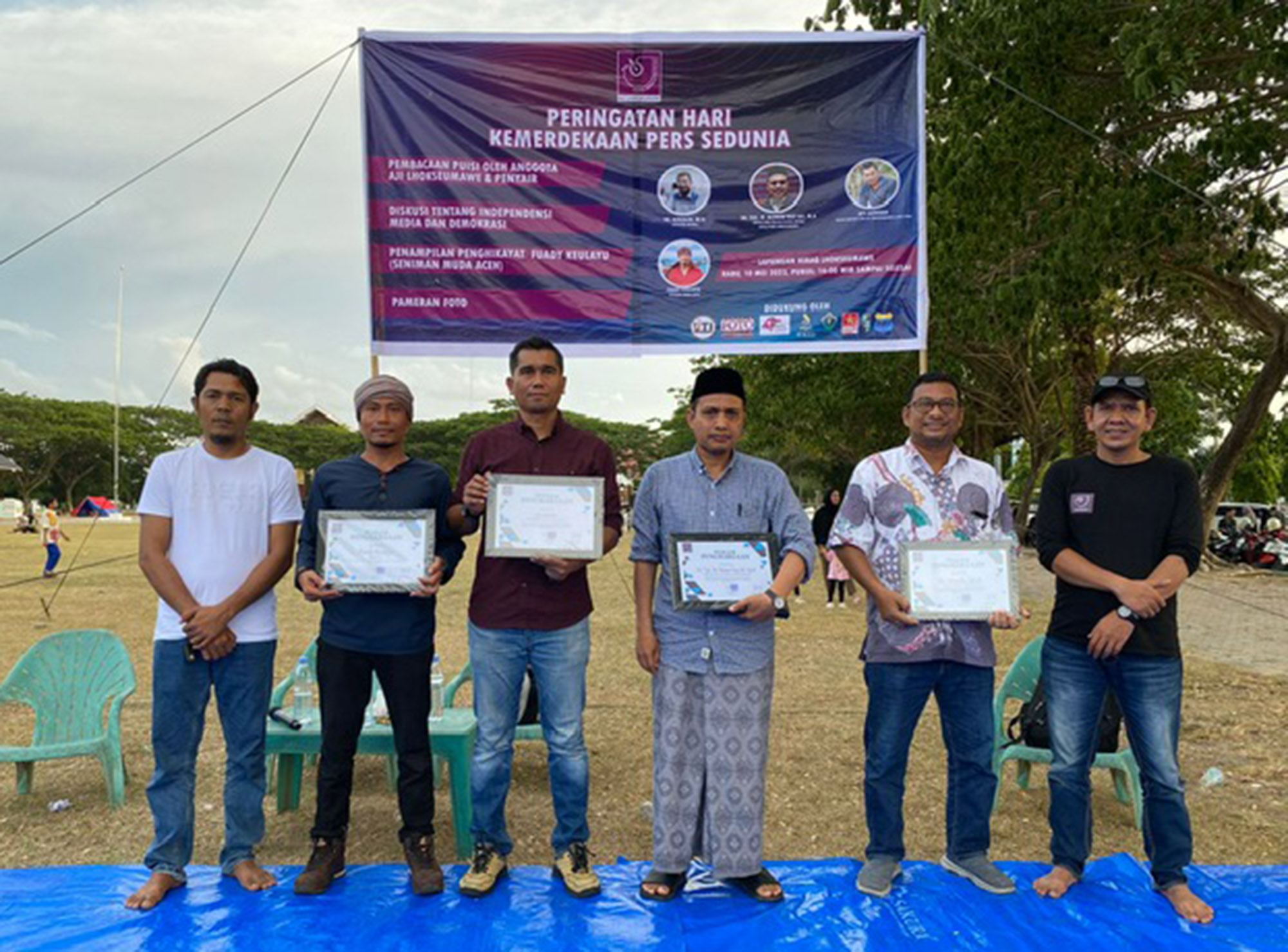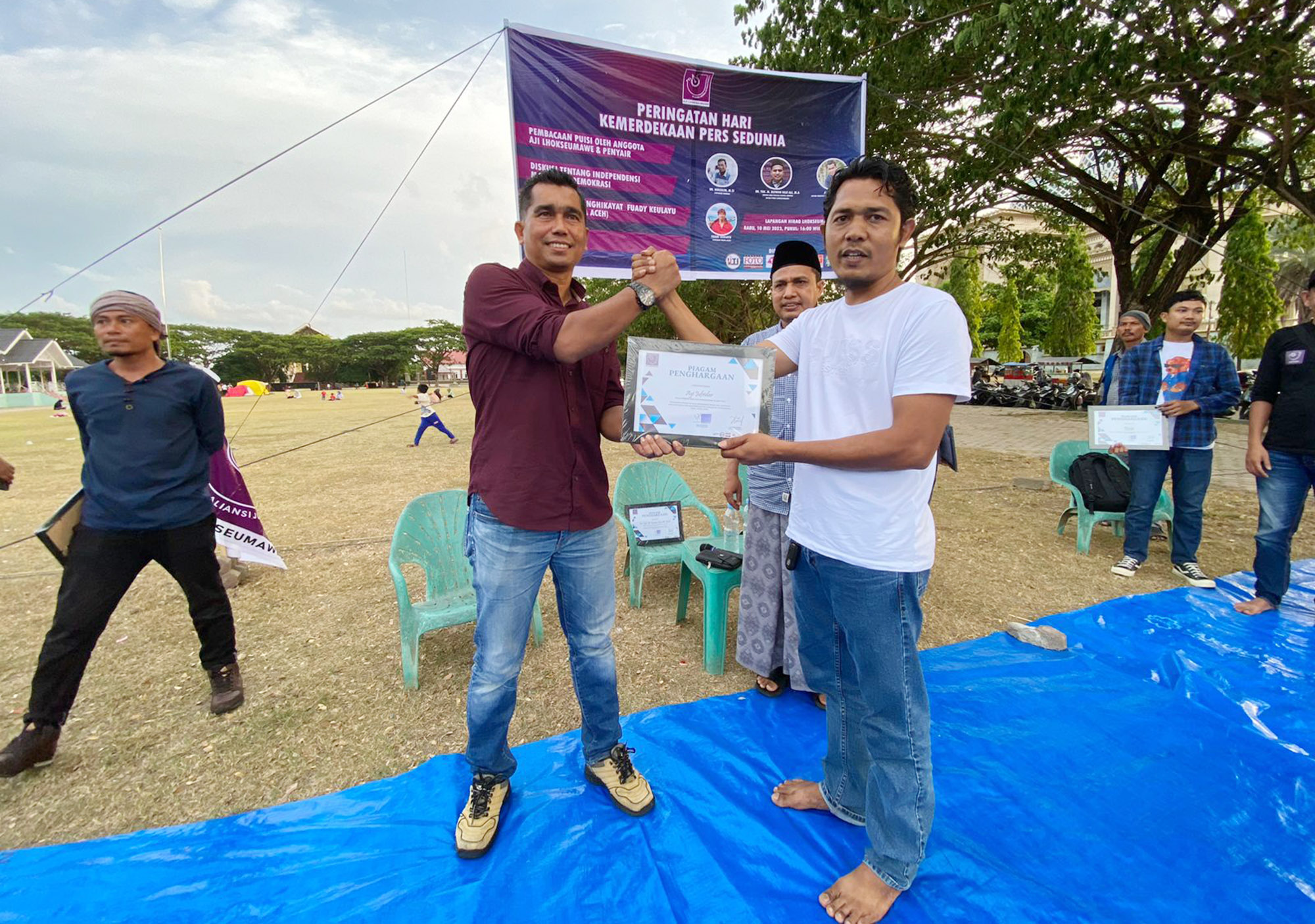Threats to Press Freedom amidst Changes in Regulation and Government |

Commemoration of press freedom day in Lhokseumawe, Aceh (Indonesia), in 2023.
Press freedom in Indonesia has faced serious challenges recently and in the future with the existence of a number of regulations, discourse on changes to broadcasting laws, and the birth of a new government as a result of the 2024 elections. Bad regulations and an anti-critical government are two perfect combinations to suppress press freedom. .
The changes to broadcasting law that have been in the spotlight recently, especially regarding the prohibition on exclusive broadcasts of investigative reporting, add to a long list of threats to press freedom, after civil society previously rejected a number of articles in the draft Criminal Code (RKUHP).
A number of articles that threaten press freedom in the RKUHP are being opposed in various ways by civil elements, starting from open discussions, conveying aspirations to the DPR, to demonstrations. However, the results were not encouraging because these articles were not changed.
In the midst of these conditions, changes to Law Number 32/2002 concerning Broadcasting increase the potential threat to press freedom. Reflecting on past experience, it is unlikely that protests coming from various groups, not just press workers, will be heard by the DPR. Members of the press need to determine a more effective strategy to ensure that the agenda for changes to broadcasting law actually strengthens press freedom, rather than suppressing its existence, which has been fought for for decades at the cost of blood and life.
The new government that will be born in October 2024 is also a bet on press freedom. The mass media community cannot just wait that the new government under the Prabowo-Gibran regime will guarantee press freedom. A more strategic approach is needed to ensure that press freedom will actually be strengthened.
The approach to the government and council should no longer be ceremonial by holding one meeting and hoping that everything will change. In the midst of street actions and resistance through other channels in line with democratic values, lobbying through the government and legislative institutions must be carried out more intensively.
Apart from that, sanctions against perpetrators of press criminalization must also be strengthened to ensure the continuation of press freedom. Strengthening sanctions for parties who threaten or commit violence against journalists could take the form of more severe criminal or administrative sanctions to have a deterrent effect. Many cases have been resolved peacefully after going viral in the media.
Companies and press organizations also need to develop special protection programs for journalists who face threats or intimidation, including providing legal assistance and physical protection. Insurance and the welfare of the press also need to be considered, considering the risks they face in carrying out their duties.
At the internal level, training on ethics and law for press workers must be held regularly to increase the capacity and professionalism of journalists. Scholarship and development programs are also a serious concern for young journalists to encourage journalistic quality and integrity in the future.
Indonesia should adopt and adapt international standards regarding press freedom, such as those regulated by the International Federation of Journalists and other international institutions, into national regulations.
These proposals aim to strengthen press freedom in Indonesia, protect journalists from threats and intimidation, and ensure that the media functions as an independent and responsible pillar of democracy. With clearer regulations, independent supervision and adequate protection, it is hoped that press freedom in Indonesia can continue to develop and contribute positively to society.[]

!LUV
!hiqvote
Thank so much @happyphoenix.
@happyphoenix, the HiQ Smart Bot has recognized your request (1/2) but the mana is too low. Try again later.
As a consolation, @happyphoenix gets !LOL from @hiq.redaktion.
For further questions, check out https://hiq-hive.com or join our Discord. And don't forget to vote HiQs fucking Witness! 😻